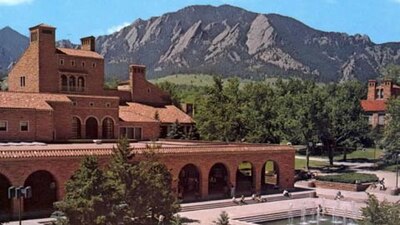It took some discussion and a yes vote by Chair Kyle Hybl to break a tie, but the University of Colorado Board of Regents Wednesday approved 2011-12 tuition and fees recommended by the administration.
For full-time resident undergraduate students, the increase would be about 9 percent at Boulder, 7 percent at Colorado Springs and 9 percent at Denver.
But average percentage increases, like everything else in higher education finance, can be deceiving.

The Boulder average increase is partly due to an increase in the number of credit hours defined as full time. A new definition of that was implemented earlier in Colorado Springs, so the increase there is lower. And the increase for part-time students would be 2 percent in Denver – where a majority of students in fact take less than a full load.
A better indicator for students and families trying to figure out their bills next year is what’s called cost of attendance, a calculation that estimates the combined impact of increased tuition and fees.
Compared to the current 2010-11 school year, those combined costs would increase for resident undergrads 5.8 percent at Boulder, 5.3 percent at Colorado Springs and 5.5 percent at Denver (lower division), according to CU documents.
The tuition and fee recommendations approved by the regents are complicated and vary by campus, program, resident or non-resident, full-time or part-time and undergraduate or graduate. And the Anschutz Medical Center has its own set of numbers.
(You can see all the tuition and fee tables in this board document. Check pages 49 and 50 for cost of attendance for resident students. Comparable figures for non-residents are on pages 53 and 54.)
Here’s a sampling of other cost-of-attendance figures:
• Increases vary more widely for resident graduate and professional students. First-year Boulder law students would pay 6.3 percent more than students did this year. But costs for graduate education students in Denver would go up only 2.7 percent. And Anschutz dental students would pay 7.1 percent more.
• Percentage increases for non-resident students would be lower in Boulder and Colorado Springs but above 7 percent for both non-resident undergrads and grad students in Denver.
Out-of-state students, of course, pay much more than Colorado students. Estimated cost of attendance for a resident Boulder arts and sciences undergrad next year would be $27,245. The kid from elsewhere would pay $48,423. Even with increases, that out-of-state student could save about 10 grand by going to UCD.
The vote to raise tuition was 5-4, with regents Tilman Bishop, Steve Bosley, Michael Carrigan and Stephen Ludwig voting yes, along with Hybl. Joseph Neguse, James Geddes, Sue Sharkey and Monisha Merchant voted no.
Before the vote, Geddes complained, “We have to get these runaway costs under control” and suggested the administration should have proposed tuition increases of 3 to 4 percent and then balanced the budget to that revenue.
Bishop replied, “We’ve done a pretty good job here at the university. … It is fiscally responsible to support a tuition increase.”
Vice President Kelly Fox had told the board earlier that CU’s state support for next year is being cut more than $40 million to $146 million, the university is cutting $63 million from its budget and that the tuition increases will raise about $33 million.
The regents spent very little time on the fee plan, which is even more complex than tuition. The new fee schedule passed 6-2. Merchant and Geddes voted no, and Hybl didn’t vote.
The regents’ action kicks off the tuition decision season for trustees at all Colorado state institutions, who will decide rates between now and the end of June. Some schools, including Metro State and CSU, have proposed double-digit increases. But in many of those cases the increase isn’t just in the base rate per credit hour. Some schools are proposing to change their definitions of full time, and some are proposing to lower fees while raising tuition.
